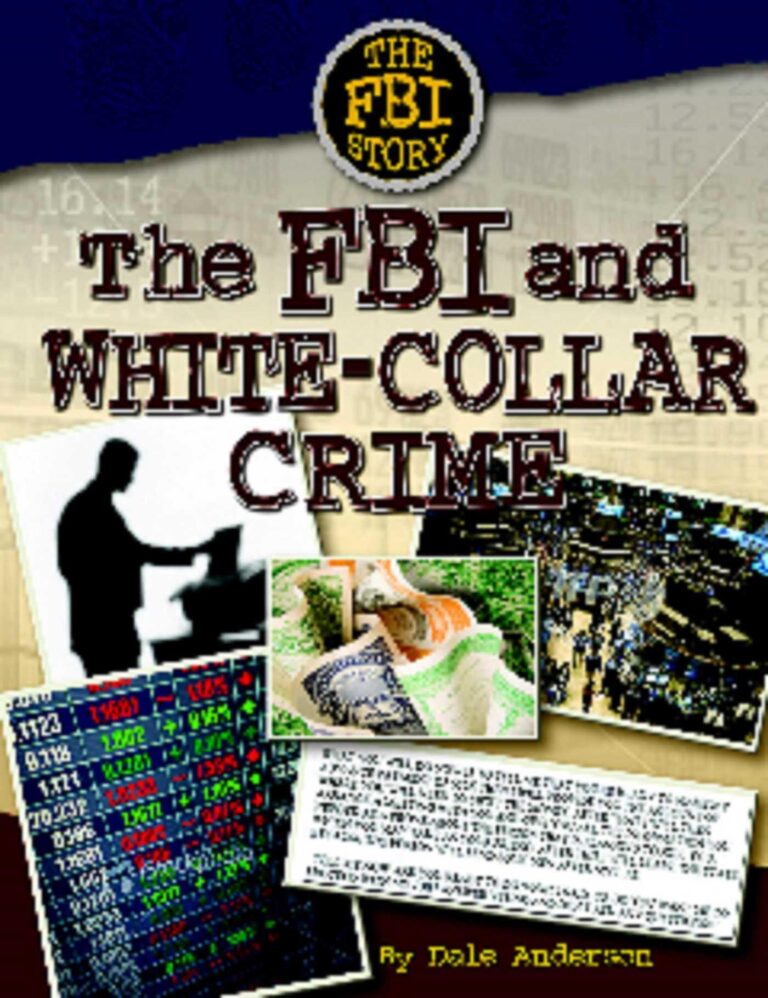Combating White-Collar Crime in the U.S.: FBI’s Evolving Role and Strategies
Defining White-Collar Crime and Its Far-Reaching Consequences
White-collar crime refers to a spectrum of financially motivated, non-violent offenses typically executed through deceit, manipulation, or breach of trust within professional or corporate environments. These illicit activities include corporate fraud, insider trading, identity theft, cyber-enabled crimes, and bribery, among others. The intricate nature of these crimes, often involving complex schemes and digital tools, poses notable challenges for detection and prosecution.
Financially, white-collar crime inflicts staggering losses on the U.S. economy, with estimates reaching tens of billions annually. Beyond monetary damage, these offenses erode public confidence in institutions, destabilize markets, and undermine the rule of law. For instance, the U.S. Securities and Exchange Commission (SEC) reported a 15% increase in insider trading cases in 2023, highlighting the growing complexity of these violations.
- Market manipulation through fraudulent corporate disclosures
- Cyber intrusions targeting confidential data and financial assets
- Corrupt lobbying and bribery compromising governance
- Exploitation of privileged information in stock trading
| Type of Crime | Approximate Annual Financial Impact | Common Perpetrators |
|---|---|---|
| Corporate Fraud | $55 Billion+ | Senior Executives, Financial Officers |
| Identity Theft | $26 Billion | Cyber Hackers, Insider Threats |
| Cybercrime (Global) | $6.5 Trillion | Organized Cybercriminal Groups |
Modern Tactics Employed by White-Collar Offenders
White-collar criminals have adapted to technological advancements, employing increasingly complex methods to exploit systemic weaknesses. Phishing remains a dominant tactic,where fraudsters send deceptive communications to manipulate employees into divulging sensitive credentials or authorizing unauthorized transactions. Insider trading continues to undermine market fairness by leveraging confidential information for illicit profit.
Other prevalent schemes include:
- Ponzi and Pyramid Scams: Fraudulent investment operations that pay returns to earlier investors using capital from new participants, rather than legitimate earnings.
- Embezzlement: The misappropriation of funds by trusted employees or executives within organizations.
- Money Laundering: Complex financial maneuvers designed to obscure the illegal origins of money, making it appear legitimate.
| Scheme | Primary Targets | Distinctive Features |
|---|---|---|
| Phishing | Corporate Staff | Deceptive interaction to harvest credentials |
| Insider Trading | Financial Markets | Exploitation of confidential information |
| Ponzi Scheme | Individual Investors | Unsustainable returns funded by new investors |
| Embezzlement | Company Resources | Unauthorized fund diversion by insiders |
| Money Laundering | Financial Systems | Concealment of illicit fund origins |
FBI’s Advanced Techniques and Collaborative Efforts in Tackling White-Collar Crime
The Federal Bureau of Examination employs a comprehensive and technologically advanced approach to dismantle white-collar criminal enterprises. Digital forensics plays a pivotal role, enabling agents to recover and analyze electronic evidence that reveals hidden financial fraud. Sophisticated data analytics tools help identify irregular transaction patterns and link disparate data points,uncovering fraudulent networks that evade traditional detection methods.
Collaboration is central to the FBI’s strategy, involving partnerships with agencies such as the Department of Treasury, SEC, and state law enforcement. Legal mechanisms like subpoenas and surveillance warrants facilitate timely access to critical financial documents and communications.Key components of the FBI’s approach include:
- Cybercrime Task Forces: Dedicated units targeting cyber-enabled financial offenses.
- Financial Intelligence Collaboration: Working closely with banks to flag suspicious activities.
- Undercover Operations: Covert infiltration of criminal organizations to gather evidence.
- Whistleblower Incentives: Programs encouraging insiders to report wrongdoing safely.
| Strategy/Tool | Function | Effectiveness |
|---|---|---|
| Data Analytics | Spotting abnormal financial transactions | Uncovers concealed fraud networks |
| Digital Forensics | Extracting and analyzing electronic evidence | Essential for cybercrime prosecutions |
| Interagency Cooperation | Coordinating investigations with multiple agencies | Improves intelligence sharing and case outcomes |
Proactive Measures for Organizations and Individuals to Mitigate Risks
Preventing white-collar crime requires cultivating an organizational culture grounded in transparency and ethical duty. Companies should implement stringent internal controls, conduct frequent audits, and provide continuous employee education on fraud detection and prevention. Establishing secure whistleblower channels with guaranteed protections encourages reporting of suspicious conduct without fear of reprisal, thereby strengthening corporate integrity.
Individuals must also take active steps to protect their personal and professional information. Recommended practices include:
- Utilizing strong, unique passwords and encrypted communication tools to safeguard sensitive data.
- Confirming financial or confidential requests through multiple verification methods before compliance.
- Keeping abreast of prevalent fraud tactics within their industry or sector.
- Maintaining meticulous records of all financial transactions and business interactions.
| Preventive Strategy | Advantages |
|---|---|
| Frequent Internal Audits | Early identification of anomalies |
| Whistleblower Protection Policies | Enhanced fraud reporting rates |
| Employee Fraud Awareness Training | Improved vigilance and responsibility |
| Data Encryption and Cybersecurity | Minimized risk of data breaches |
Final Thoughts: Sustaining the Fight Against White-Collar Crime
White-collar crime continues to pose a formidable threat to the stability of financial markets and public confidence. The FBI’s dynamic and technology-driven approach, combined with interagency cooperation and public-private partnerships, is essential in addressing these sophisticated offenses. Staying informed about emerging fraud trends and supporting robust preventive frameworks are critical for businesses,regulators,and individuals alike. Collective vigilance and proactive measures will be indispensable in preserving the integrity of the nation’s economic and institutional systems against the evolving landscape of white-collar criminal activity.




